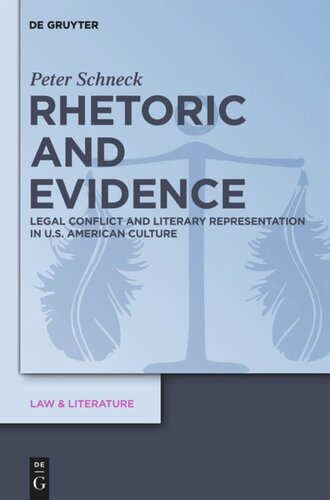

Most ebook files are in PDF format, so you can easily read them using various software such as Foxit Reader or directly on the Google Chrome browser.
Some ebook files are released by publishers in other formats such as .awz, .mobi, .epub, .fb2, etc. You may need to install specific software to read these formats on mobile/PC, such as Calibre.
Please read the tutorial at this link: https://ebookbell.com/faq
We offer FREE conversion to the popular formats you request; however, this may take some time. Therefore, right after payment, please email us, and we will try to provide the service as quickly as possible.
For some exceptional file formats or broken links (if any), please refrain from opening any disputes. Instead, email us first, and we will try to assist within a maximum of 6 hours.
EbookBell Team

4.0
46 reviewsThe book traces the changing relation and intense debates between law and literature in U.S. American culture, using examples from the 18th to the 20th century (including novels by Charles Brockden Brown, James Fenimore Cooper, Harper Lee, and William Gaddis). Since the early American republic, the critical representation of legal matters in literary fictions and cultural narratives about the law served an important function for the cultural imagination and legitimation of law and justice in the United States. One of the most essential questions that literary representations of the law are concerned with, the study argues, is the unstable relation between language and truth, or, more specifically, between rhetoric and evidence. In examining the truth claims of legal language and rhetoric and the evidentiary procedures and protocols which are meant to stabilize these claims, literary fictions about the law aim to provide an alternative public discourse that translates the law's abstractions into exemplary stories of individual experience. Yet while literature may thus strive to institute itself as an ethical counter narrative to the law, in order to become, in Shelley’s famous phrase “the legislator of the world”, it has to face the instability of its own relation to truth. The critical investigation of legal rhetoric in literary fiction thus also and inevitably entails a negotiation of the intrinsic value of literary evidence.